- Trinity Valley Community College is a learning-centered college that provides quality academic, workforce, and community service programs to meet the educational needs of our students and the citizens of our service area.
School Highlights
Trinity Valley Community College serves 7,518 students (24% of students are full-time).
The college's student:teacher ratio of 18:1 is lower than the state community college average of 23:1.
Minority enrollment is 48% of the student body (majority Hispanic), which is less than the state average of 74%.
Quick Stats (2025)
- Enrollment: 7,518 students
- In-state tuition: $3,660
- Out-state tuition: $4,500
- Student:teacher ratio: 18:1
- Minority enrollment: 48%
- Source: Integrated Postsecondary Education Data System (IPEDS)
Top Rankings
Trinity Valley Community College ranks among the top 20% of public schools in Texas for:
Category
Attribute
Completion Rates
School Overview
The teacher population of 419 teachers has stayed relatively flat over five years.
Trinity Valley Community College
(TX) Community College Avg.
Carnegie Classification
Associate's Colleges: Mixed Transfer/Career & Technical-High Traditional
Baccalaureate/Associate's Colleges: Associate's Dominant
Institution Level
Four or more years
At least 2 but less than 4 years
Institution Control
Public
Private, for profit
Total Faculty
419 staff
262 staff
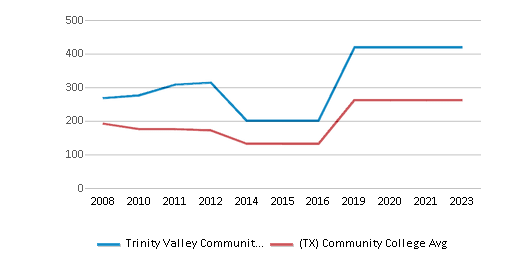
School Calendar
Student Body
The student population of Trinity Valley Community College has grown by 20% over five years.
The student:teacher ratio of 18:1 has increased from 13:1 over five years.
The Trinity Valley Community College diversity score of 0.64 is less than the state average of 0.70. The school's diversity has stayed relatively flat over five years.
Total Enrollment
7,518 students
1,396 students
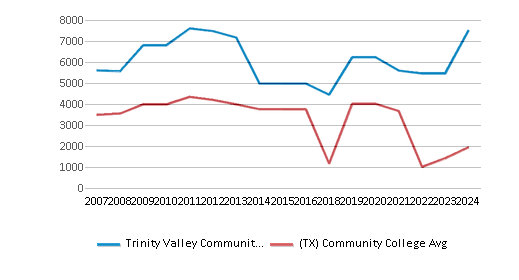
Student : Teacher Ratio
18:1
23:1
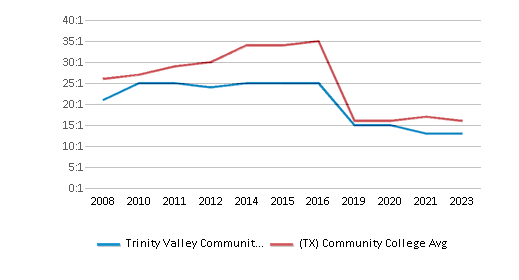
# Full-Time Students
1,778 students
890 students
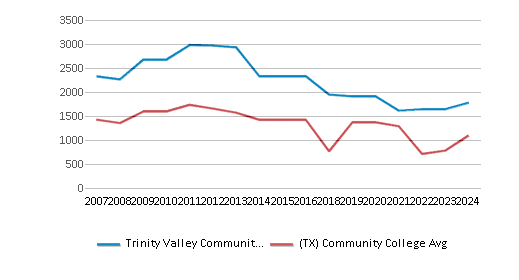
# Part-Time Students
5,740 students
4,022 students
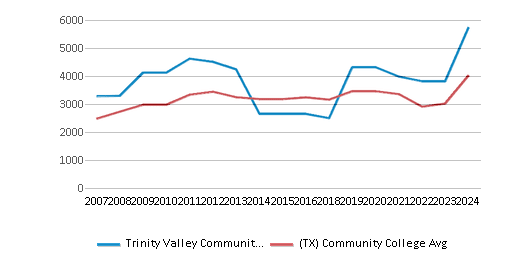
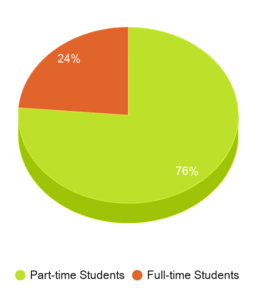
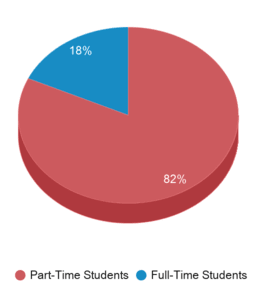
# Enrollment Undergraduate
751 students
403 students
# Full-Time Undergraduate Students
1,778 students
890 students
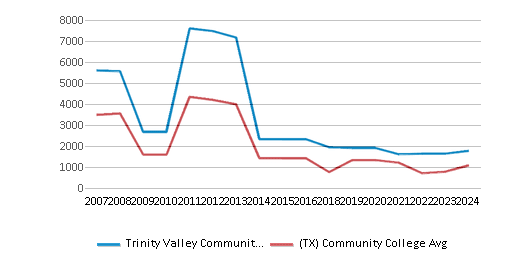
# Full-Time Graduate Students
n/a
40 students
# Part-Time Undergraduate Students
5,740 students
4,022 students
# Part-Time Graduate Students
n/a
47 students
Total Dormitory Capacity
500 students
252 students
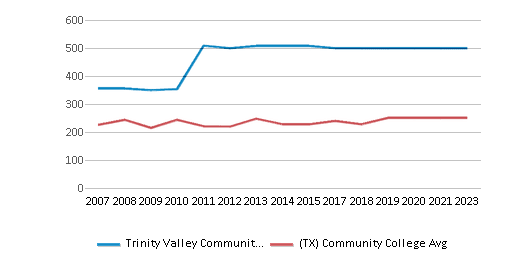
% American Indian/Alaskan
1%
n/a
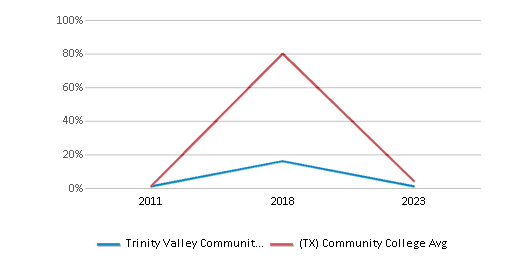
% Asian
1%
6%
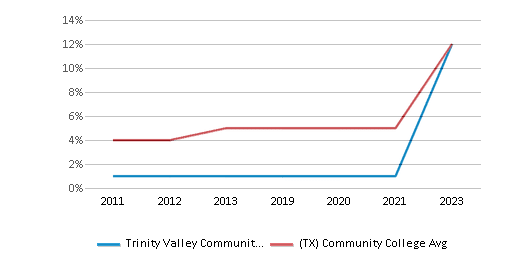
% Hispanic
27%
46%
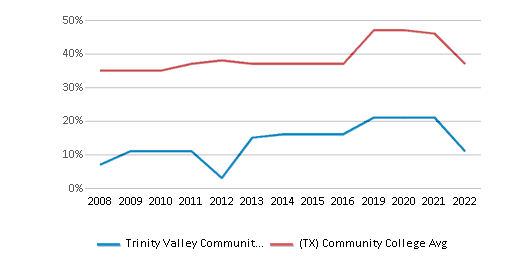
% Black
14%
14%
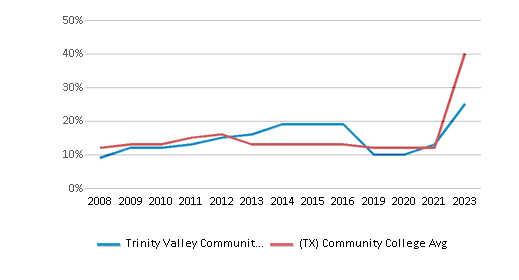
% White
52%
26%
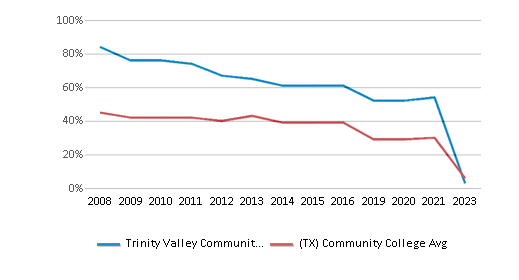
% Hawaiian
n/a
n/a
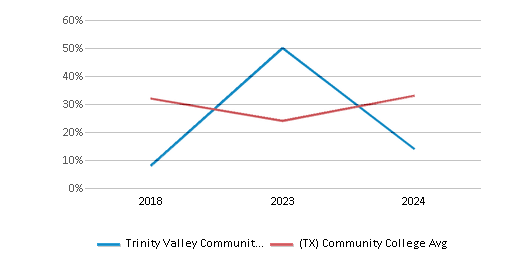
% Two or more races
2%
3%
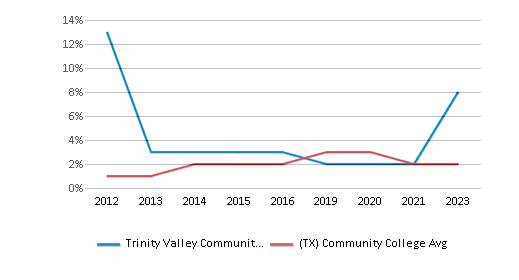
% Non Resident races
1%
2%
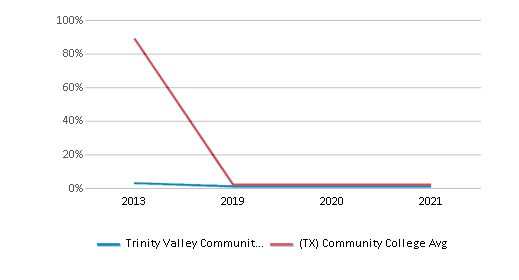
% Unknown races
3%
3%
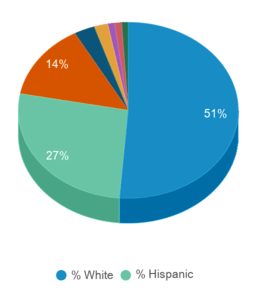
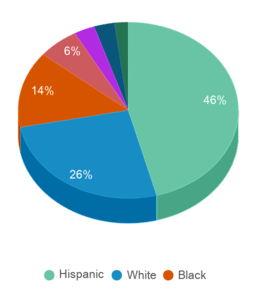
Diversity Score
0.64
0.70
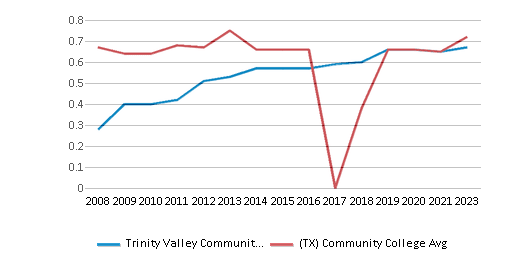
College Completion Rate (Students who graduate in less than 4 years)
24%
0.5469%
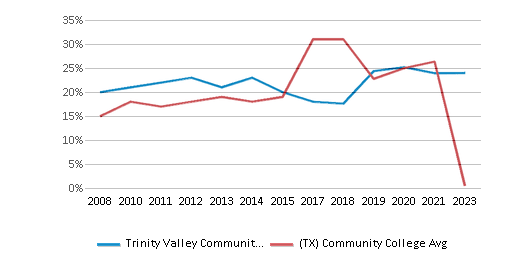
College Completion Rate (Students who graduate in 4 years or more than 4 years)
0.2526%
0.3357%
Average Graduate Earnings (10 Years)
$33,500
$34,600
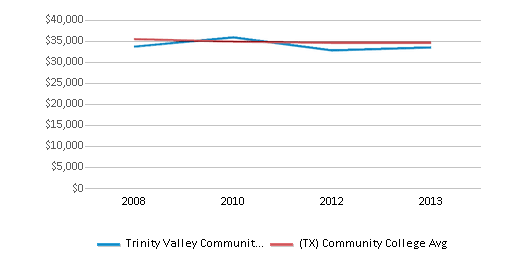
Tuition and Acceptance Rate
The public in-state tuition of $3,660 is more than the state average of $3,316. The in-state tuition has declined by 25% over four years.
The public out-state tuition of $4,500 is less than the state average of $5,750. The out-state tuition has declined by 24% over four years.
In-State Tuition Fees
$3,660
$3,316
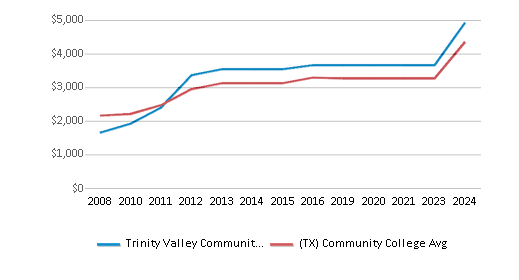
Out-State Tuition Fees
$4,500
$5,750
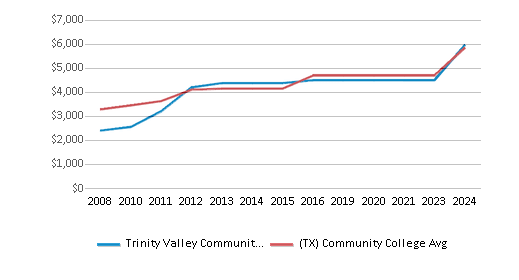
% Students Receiving Some Financial Aid
77%
84%
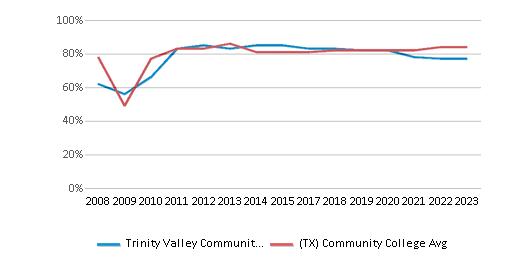
Median Debt for Graduates
$10,500
$10,765
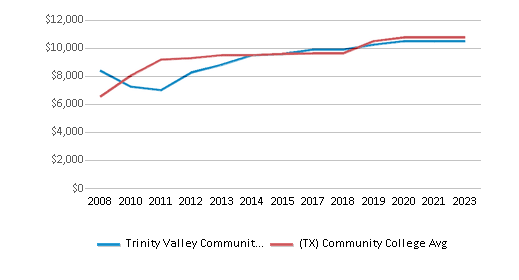
Median Debt for Dropouts
$5,500
$5,500
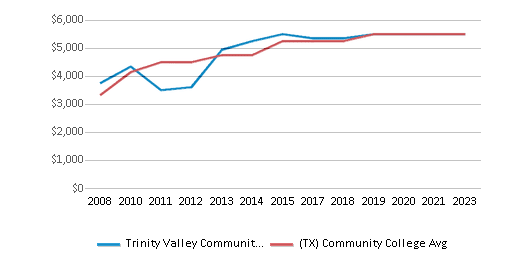
Acceptance Rate
n/a
81%
Source: 2024 (or latest year available) Integrated Postsecondary Education Data System (IPEDS)
School Notes
- Henderson County Junior College was founded by a group of Athens civic leaders, headed by J. P. Pickens and Orval Pirtle, and public school administrators in late 1945 and early 1946. The creation of Henderson County Junior College was formally approved by voters in the election of May 4, 1946. The first registration was conducted in temporary facilities at Athens High School on June 3, 1946, and three days later classes began there. The Board of Trustees provided Henderson County Junior College with its own facilities at the present location of the Henderson County Campus on June 24, 1946. The College moved to its new campus for the beginning of the fall semester, 1946. As a result of the continued regional expansion of the College, the Board of Trustees authorized and approved a name change from Henderson County Junior college to Trinity Valley Community College in September, 1986, with campus designations: Athens - Henderson County Campus, Palestine - Anderson County Campus, Terrell - Kaufman County Campus and Kaufman - Health Science Center. The facilities include general classrooms; modern laboratories for science and appropriate occupational programs; a modern well equipped Learning Resources Center; a men and women's physical education building; a well equipped instruction media center; and a Student Union building. A modern, well equipped green house is available to students in the Horticulture, Ranch Management and Agriculture Programs. Trinity Valley Community College is accredited by the Commission on Colleges of the Southern Association of Colleges and Schools to award the Associate of Arts degree, Associate of Science degree, and Associate of Applied Science degree.
Frequently Asked Questions
How much does Trinity Valley Community College cost?
Trinity Valley Community College's tuition is approximately $3,660 for In-State students and $4,500 for Out-State students.
What is Trinity Valley Community College's ranking?
Trinity Valley Community College ranks among the top 20% of community college in Texas for: Highest completion rates.
Recent Articles

Obtaining Your Bachelor's Degree at a Community College
Explore the evolving landscape of community colleges offering bachelor's degrees, addressing affordability, accessibility, and workforce needs.

A to Z of Community College Certificates and Courses
From business and healthcare to technology and skilled trades, the article showcases the breadth of options available to students seeking to enhance their knowledge, develop new skills, or pursue career advancement.

What is a Community College?
This comprehensive guide explains what a community college is, its history, and its role in higher education. It covers the types of programs offered, differences from four-year colleges, benefits of attending, and important considerations for prospective students, providing valuable insights for those exploring educational options.










